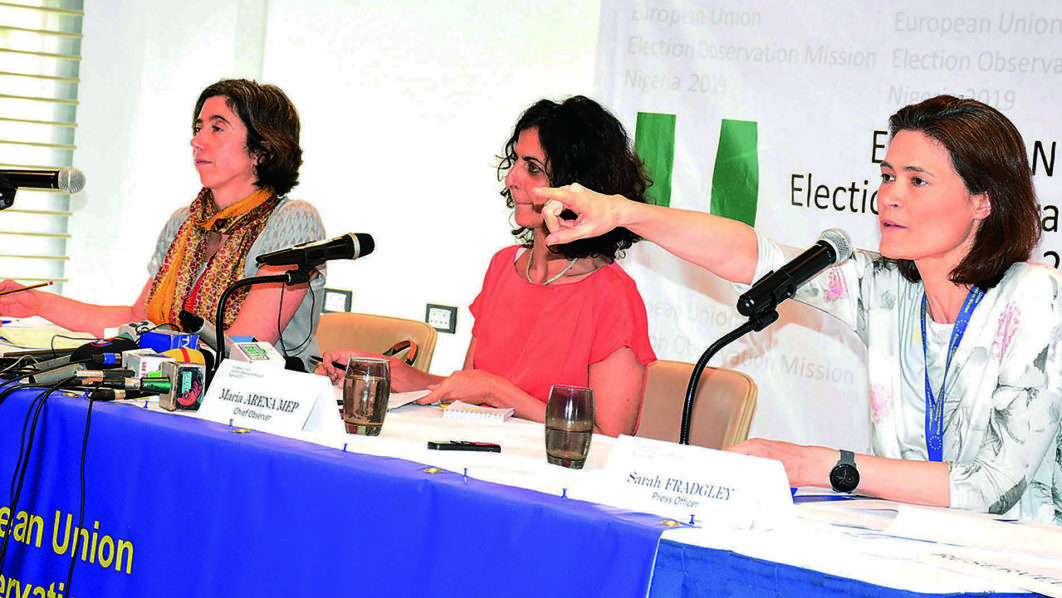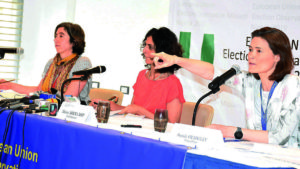According to the European Union Election Observation Mission (EU EOM), the March 23 supplementary elections in Kano, Bauchi, Benue, Plateau and Sokoto states were marred by insecurity, violence, intimidation and ineffectiveness of security agencies. The group said 20 of its observers monitored the exercise in the affected states from polling through counting and collation of results.
In its report yesterday in Abuja, the EU observers said there were “cases of extensive electoral security problems in some areas, with groups of men with weapons intimidating and obstructing the process while security agencies were ineffective at protecting citizens’ right to vote.”
In particular, the document, released by the Press Officer, Sarah Fradgley, stated that parts of Kano were largely “inaccessible to EU observers as citizen observers and journalists were obstructed amid security failures.”The European monitors also pointed out “increased interference by party agents and cases of vote-buying”, insisting that the leaderships did not take steps to rein in their supporters.
Given the high stakes and the low turn-out of the electorate, the report noted that the polls were “systemically vulnerable to parties, strategically pressurising voters and disrupting the process.”The EU team, however, submitted that there were improved logistical arrangements and procedures mostly followed, but quickly added that there were problems with secrecy of the ballot as it was so open in nearly one-third of polling units observed.
It regretted that throughout the day, the Independent National Electoral Commission (INEC) never commented on the alleged electoral disturbances.
European Union scores supplementary polls low on security






